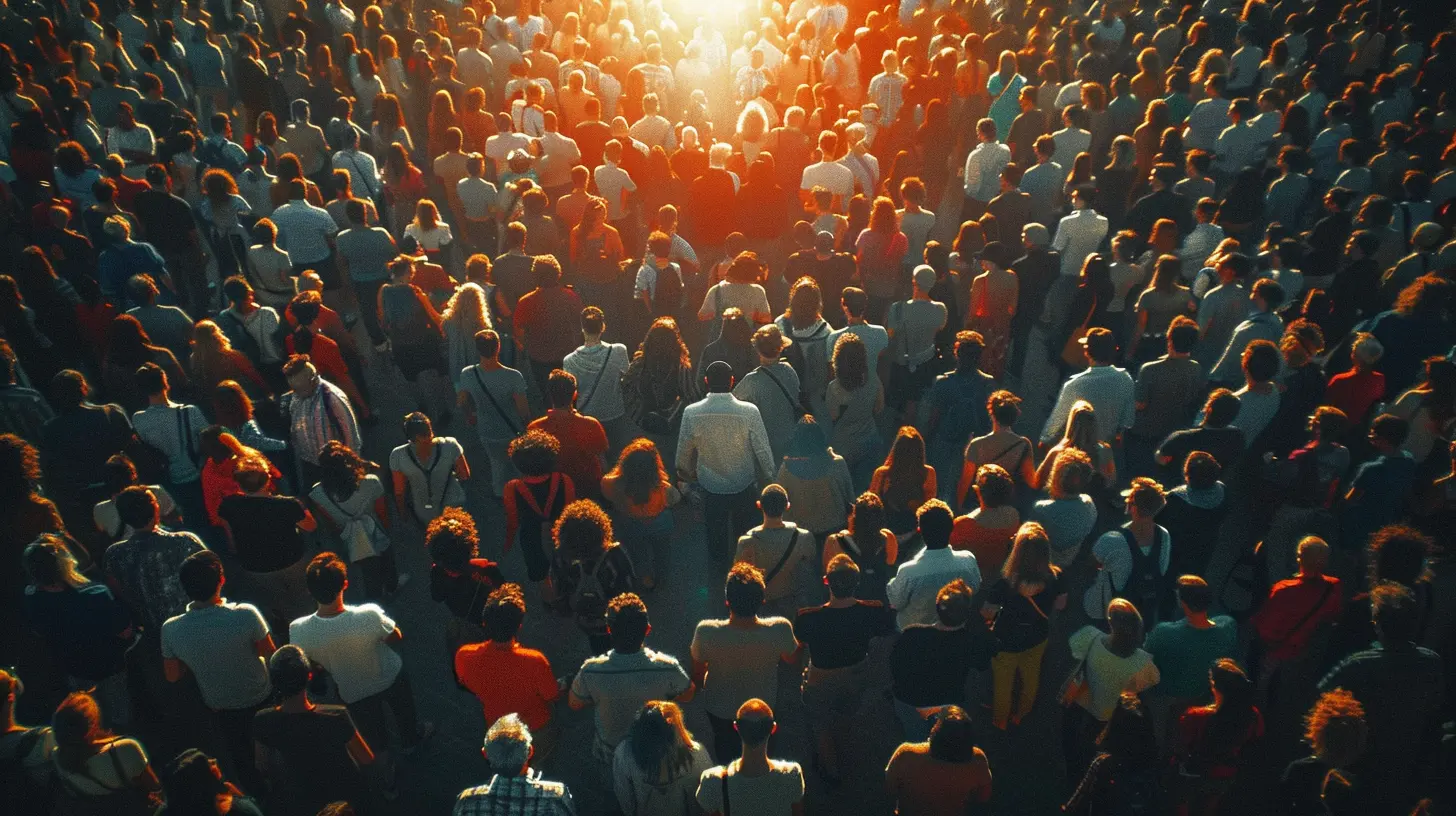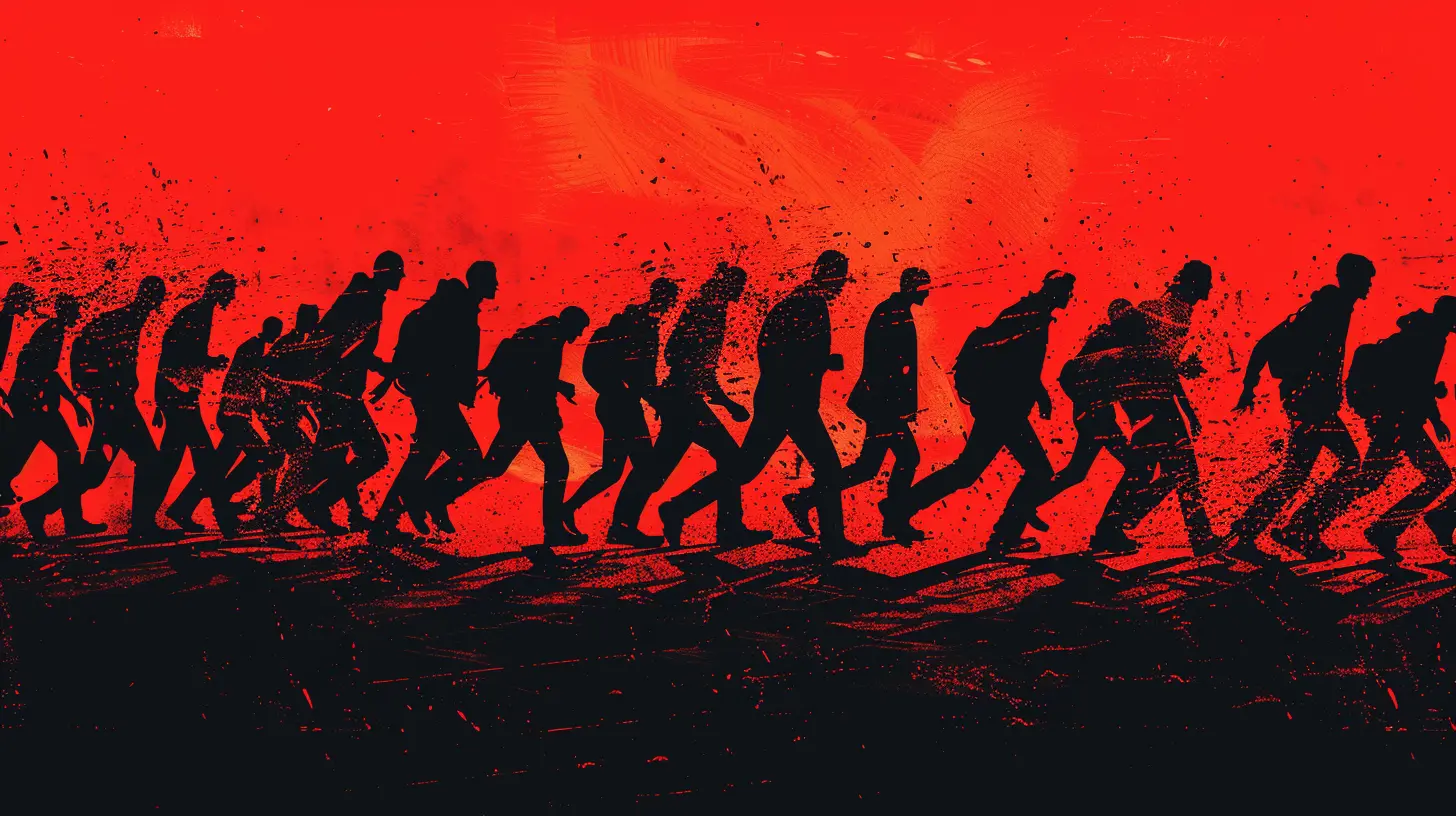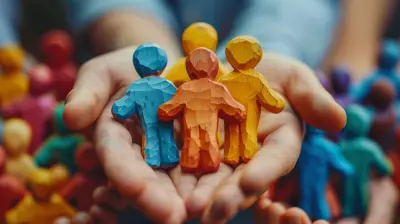The Impact of Scarcity on Social Interactions and Competition
18 September 2025
What happens when there’s not enough to go around? Whether it’s food, money, time, or attention — scarcity shakes things up, affecting how we think, feel, and act. In fact, scarcity is one of those invisible forces that subtly shapes our relationships, our social behavior, and even our competitive nature.
Let’s dive deep into how scarcity influences our world — from the choices we make in friendships to rivalry at work or school. And while the idea of scarcity often rings alarms about economics or survival, its psychological impact stretches far beyond just material needs.

What is Scarcity, Really?
Before we start connecting dots, let’s start with the basics.At its core, scarcity means there’s a limited supply of something we want or need. It could be tangible (like jobs or housing) or intangible (like time or affection). When something is scarce, it suddenly becomes more valuable in our eyes — even if it’s something we didn’t care much about before. Think of the last time people rushed to buy toilet paper — yep, that’s scarcity at work.
But scarcity isn’t just about stuff. It can also be emotional or social. Feeling like there's not enough attention from a partner? That’s emotional scarcity. Competing for a friend’s time? That’s social scarcity.
So, how does this limited-supply mindset play into how we interact with others?
Scarcity and Social Dynamics: The Chase Begins
Let’s be honest — nothing makes people want something more than being told they can’t have it. Scarcity triggers a psychological reaction where we perceive the “rare” as more desirable. This idea plays out all the time in our social lives.1. The Scarcity Principle in Relationships
Ever heard the phrase "playing hard to get"? It’s basically a real-world example of the scarcity principle in action. When someone appears less available, people tend to chase them more. Why? Because scarcity signals value. If someone is "hard to get," our brains label them as more desirable — not always consciously, but definitely instinctively.This can lead to some pretty interesting (and sometimes toxic) relationship dynamics. People may manipulate availability, emotionally withdraw, or create “scarcity” to gain attention or feel more valued.
2. Scarcity & FOMO (Fear Of Missing Out)
Social media is like a scarcity factory. We scroll through highlight reels of parties, vacations, and perfect bodies, and the feeling of "missing out" creeps in. FOMO is powered by perceived scarcity — it makes us believe everyone else is having more fun, doing better, and living more fully.This illusion can change how we interact socially. We might overextend ourselves, attend events we don’t care about, or connect superficially just to not miss out. The fear of scarcity in social status or experiences pushes us into hyperdrive competition.
When Resources Are Scarce, Competition Heats Up
Now let's shift gears. Imagine you're in a setting where either time, money, or opportunities are tight. What happens? People compete. They scramble to get a piece of the pie before it’s gone.Scarcity doesn't just affect our social lives — it fuels competition like lighter fluid on a grill.
3. Competing for Limited Opportunities
In school or the workplace, when there are only so many top positions, scholarships, or promotions, scarcity creates a race to the finish line. People become more focused, sure — but also more aggressive and, in some cases, less ethical.Studies in behavioral psychology have shown that when people are under scarcity pressure, they tend to rely on short-term thinking. They cut corners, take risks, and often make decisions they wouldn’t make otherwise. The famous "scarcity mindset" can cloud judgment because it hijacks your attention and narrows your focus.
4. The Zero-Sum Trap
When scarcity is looming, people often fall into what's called a "zero-sum" mindset — where one person’s gain automatically becomes another’s loss. This kind of thinking can strain relationships and teamwork. Instead of collaborating, people end up hoarding information, sabotaging others, or being overly protective of their roles.In short, scarcity transforms us from community-minded folks into lone wolves. We stop thinking "we’re in this together" and start thinking "it’s me versus them."
Psychological Effects of Scarcity on the Mind
Let’s pause and look inside the brain for a second.The concept of scarcity doesn’t just change what we do — it rewires how we think.
5. Tunnel Vision
Scarcity creates mental tunnel vision. If you've ever been broke at the end of the month, you know what this feels like. You start focusing entirely on money — how to get it, where to save, and what you can’t afford. This focus pushes everything else out of view — your health, relationships, long-term planning — they all take a backseat.Scarcity taxes our mental bandwidth. When your brain’s juggling anxieties about what’s missing, it doesn’t have the capacity for creative problem solving or emotional regulation. This change in cognition affects how we interact with others — we may become snappier, more defensive, or emotionally distant.
6. Increased Stress & Irritability
Let’s face it — knowing something is limited makes us anxious. Scarcity puts us in a constant state of alert, triggering the stress response in our nervous system. This can lead to:- Increased irritability in relationships
- Difficulty empathizing with others
- Heightened suspicion and distrust
- Miscommunication and conflict
Stress changes how we show up in the world. And chronic scarcity-driven stress? That can affect everything from our friendships to our work performance.
Social Comparison and Scarcity: A Toxic Mix
One of the dark sides of scarcity is what it does to how we see ourselves. When we perceive that others have more of something we lack — looks, money, opportunities — we start comparing. And comparison is the thief of joy, right?7. The Social Comparison Spiral
Scarcity dials up competitive instincts, but social comparison adds fuel to the fire. We don’t compete in a vacuum — we weigh ourselves against others constantly.This can lead to envy, resentment, and low self-esteem. If someone else has what we perceive as rare or unattainable (like a thriving relationship, a cushy job, or an Instagram-perfect life), we start to question our own worth. That comparison loop can damage self-image and corrode friendships.
8. Scarcity and Identity Threat
When access to group membership, status, or respect becomes scarce, people can feel like their identity is on the line. This happens a lot around social or cultural groups — maybe someone feels excluded, underrepresented, or marginalized. That feeling of scarcity in belonging triggers deep emotional responses and can fuel conflict or mistrust between groups.Can Scarcity Ever Be a Good Thing?
Let’s not paint scarcity as pure evil — it has a few upsides.9. Motivator and Innovator
Scarcity can push people to be more resourceful. In situations where resources are tight, folks often get super creative. They solve problems in unique ways, collaborate more effectively, and develop grit.Think about startups. With limited funding, small teams, and big dreams, they often outperform bigger, bloated organizations because scarcity forces innovation.
10. Clarity and Prioritization
Ironically, scarcity can also help us get clear on what matters. When you have less time, for example, you prioritize who and what you spend it on. This can boost authenticity — you stop wasting energy on things that don’t align with your values.How to Cope and Stay Grounded in a Scarce World
Alright, so we’ve unpacked the impact of scarcity. But how do we keep ourselves from turning into competitive, stressed-out balls of anxiety?Here are a few strategies:
11. Build a Mindset of Abundance
Fight scarcity thinking with abundance. No, this isn't just about money. It’s about believing there’s enough love, opportunity, and connection to go around. Practicing gratitude, affirming self-worth, and celebrating others’ successes can help retrain the brain.12. Focus on Collaboration Over Competition
Sure, some competition is healthy. But we thrive more when we lift each other up. Whether it’s at work, school, or in friendships — shifting to a team mindset reduces the fear of missing out and promotes sharing over hoarding.13. Practice Mindful Social Media Use
Remember: what you’re seeing online is a filtered reality. Limit your exposure if it fuels scarcity thinking. Curate your feed to include content that nurtures rather than drains.14. Invest in Relationships, Not Just Results
When scarcity takes over, we often neglect our relationships. Make time for connection. Even a quick message or coffee chat can reinforce the abundance of care and community in your life.Final Thoughts
Scarcity isn’t just about having less — it’s about what the idea of "less" does to our minds and relationships. From sparking competition to fuelling insecurity, scarcity shapes social behavior in complex ways. But the good news? Awareness is power. Once we recognize how scarcity operates under the surface, we can reclaim control, make better choices, and build stronger connections — even in a world that often feels like it's running on empty.So next time you feel like there’s not enough — pause. Breathe. And remind yourself: the pie doesn’t have to be cut smaller. Sometimes, we just need to bake more.
all images in this post were generated using AI tools
Category:
Social PsychologyAuthor:

Jenna Richardson
Discussion
rate this article
1 comments
Kaitlyn Richardson
This article effectively highlights how scarcity influences social dynamics and competition. It’s intriguing to see how limited resources can alter behavior, leading to both collaboration and conflict. A thought-provoking read that sheds light on fundamental aspects of human interaction.
September 26, 2025 at 4:51 AM

Jenna Richardson
Thank you for your thoughtful feedback! I'm glad you found the article engaging and that it resonated with the complexities of human interaction.


